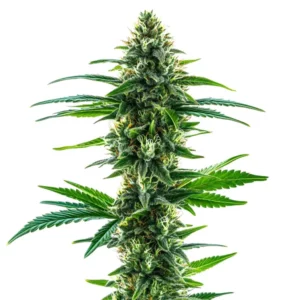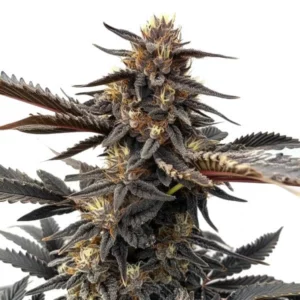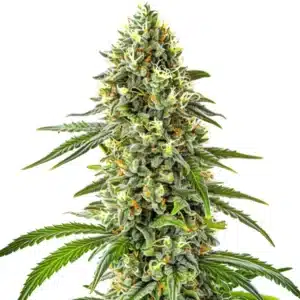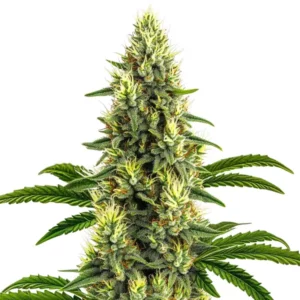
Cannabis Detection Times: How Long Does Cannabis Stay in Your System?
Factors Affecting Cannabis Metabolism
Role of THC and Its Metabolites
Cannabis metabolism is an intriguing subject, largely due to the central role played by THC (tetrahydrocannabinol), the primary psychoactive component. When cannabis is consumed, THC is rapidly broken down into several metabolites by the liver. Among these, THC-COOH is the most notable, as it lingers in the body for extended periods. This metabolite is fat-soluble, meaning it binds to fat cells and is gradually released over time. Consequently, knowing the journey of THC can elucidate how long cannabis stays in your system.
Interestingly, the presence of THC and its metabolites in the body is what most drug tests aim to detect. The metabolism of THC is complex and involves various enzymatic processes, primarily in the liver. Enzymes such as cytochrome P450 play a pivotal role in this metabolic breakdown. The rate at which THC is metabolized can vary significantly among individuals, making it essential to consider various factors that influence this process.
Recommended Strains
Khalifa Kush
|
|
THC | 26% - 30% (High) |
|
|
Type | Feminized |
|
|
Yield | Medium |
|
|
Phenotype | 80% Indica / 20% Sativa |
Ghost OG
|
|
THC | 25% - 27% (High) |
|
|
Type | Feminized |
|
|
Yield | High |
|
|
Phenotype | 70% Indica / 30% Sativa |
Individual Metabolic Differences
The human body is a complex machine, and individual metabolic differences greatly affect how long cannabis stays in your system. Factors such as age, gender, and body mass index (BMI) can influence the rate at which THC is metabolized. Younger individuals tend to have faster metabolisms, which can facilitate quicker elimination of THC. Conversely, older adults may experience slower metabolic rates, resulting in prolonged retention of cannabis metabolites.
In addition to age, genetic factors can also play a significant role in cannabis metabolism. Some people are genetically predisposed to metabolize substances more rapidly due to variations in their enzyme activity. Furthermore, lifestyle choices, such as diet and exercise, can impact metabolic rates and, consequently, the duration THC remains detectable in the body. Knowing these individual differences can provide valuable insights into personalized cannabis testing and consumption strategies.
Promos & Deals
Knowing Detection Times
Urine, Blood, and Hair Tests
Detection times for cannabis can vary significantly depending on the type of test used. Urine tests are the most common method for detecting cannabis use, primarily due to their cost-effectiveness and ease of administration. Cannabis metabolites can typically be detected in urine for up to 30 days after use, depending on factors such as frequency of use and individual metabolism. However, infrequent users may test negative within a few days.
Blood tests offer a more immediate window of detection. THC is typically detectable in the bloodstream within a few hours after consumption, but it is rapidly metabolized and cleared. Consequently, blood tests are most effective for detecting recent cannabis use, usually within 24-48 hours. Hair tests, on the other hand, provide a much longer detection window, potentially revealing cannabis use for up to 90 days after consumption. This method, however, is less common due to its higher cost and longer processing times.
Impact of Frequency and Dosage
The frequency and dosage of cannabis use have a profound impact on how long cannabis stays in your system. Regular users who consume cannabis multiple times a week or daily will likely have higher concentrations of THC metabolites in their bodies. As a result, these individuals may test positive for cannabis for a more extended period compared to occasional users.
Dosage also plays a crucial role in determining detection times. Higher doses of cannabis introduce more THC into the system, leading to increased accumulation of metabolites in the body. This accumulation can prolong the duration THC remains detectable. It is important for individuals who undergo regular drug testing to be mindful of both their frequency and dosage of cannabis consumption, as these factors can significantly influence test outcomes.

Scientific Insights into Cannabis Elimination
Metabolic Processes Involved
The elimination of cannabis from the body involves a series of intricate metabolic processes. When cannabis is consumed, THC is absorbed into the bloodstream and transported to the liver, where it undergoes oxidation and hydrolysis. This process results in the formation of various metabolites, including the primary metabolite THC-COOH. These metabolites are then excreted from the body through urine and feces.
The rate of cannabis elimination is influenced by several factors, including the individual’s metabolic rate, liver function, and overall health. People with faster metabolic rates tend to eliminate THC more quickly, while those with compromised liver function may experience delayed clearance. Knowing these metabolic processes can provide valuable insights into how long cannabis stays in your system and inform strategies for managing cannabis use.
Research Findings on Detection Periods
Research into cannabis detection periods has provided valuable insights into how long cannabis stays in your system. Studies have shown that occasional users may clear THC metabolites from their bodies within a few days, while chronic users may take several weeks or even months to test negative. The variability in detection times underscores the importance of considering individual factors when assessing cannabis elimination.
Scientific studies have also explored the impact of various factors, such as hydration levels and physical activity, on cannabis detection periods. Staying well-hydrated and engaging in regular exercise may aid in the elimination of THC metabolites. However, it is important to note that while these lifestyle factors can influence detection times, they may not result in significant reductions in all cases. Continued research in this field is essential for gaining a deeper realizing of cannabis elimination.
Practical Considerations and Advice
Lifestyle Factors Influencing Metabolism
Lifestyle factors can significantly influence how long cannabis stays in your system. Diet, exercise, and stress levels all play a role in metabolic processes and the elimination of THC metabolites. For instance, a balanced diet rich in nutrients can support liver function and enhance metabolic efficiency. Regular physical activity can also boost metabolism, potentially aiding in the quicker clearance of THC from the body.
Stress management is another important consideration, as chronic stress can adversely affect metabolic processes. High stress levels may lead to slower metabolism and prolonged retention of THC metabolites. Incorporating relaxation techniques, such as meditation and yoga, into your routine can help mitigate stress and promote overall well-being. By adopting a holistic approach to lifestyle management, individuals can optimize their metabolism and potentially influence cannabis detection times.
Managing Cannabis Use for Testing
For individuals subject to drug testing, managing cannabis use can be a critical consideration. Knowing how long cannabis stays in your system allows for informed decision-making regarding consumption and testing schedules. If you anticipate a drug test, reducing or abstaining from cannabis use in the weeks leading up to the test may increase the likelihood of a negative result.
Incorporating detoxification strategies, such as drinking plenty of water and engaging in regular exercise, can also support the elimination of THC metabolites. However, it is important to approach detox methods with caution, as their effectiveness can vary and may not guarantee a negative test result. Consulting with a healthcare professional or substance use counselor can provide valuable guidance tailored to individual circumstances, ensuring responsible cannabis use and testing management.

FAQs about How Long Does Cannabis Stay in Your System?
What factors influence cannabis detection times?
Cannabis detection times are influenced by a variety of factors, including frequency and dosage of use, individual metabolism, and the type of drug test administered. Regular users tend to have longer detection times compared to occasional users. Additionally, genetic factors and lifestyle choices, such as diet and exercise, can impact metabolic rates and influence how long cannabis stays in your system.
How long can THC be detected in urine?
THC can typically be detected in urine for up to 30 days after use, although this can vary depending on individual factors. Occasional users may test negative within a few days, while chronic users may retain detectable levels of THC metabolites for several weeks. It is important to consider personal usage patterns and lifestyle factors when estimating detection times.
Can lifestyle changes speed up cannabis elimination?
Lifestyle changes, such as staying well-hydrated, engaging in regular exercise, and adopting a balanced diet, can potentially support the elimination of THC metabolites. However, the effectiveness of these methods can vary, and they may not guarantee a significant reduction in detection times. Consulting with a healthcare professional can provide personalized advice on managing cannabis use and optimizing metabolism.



















